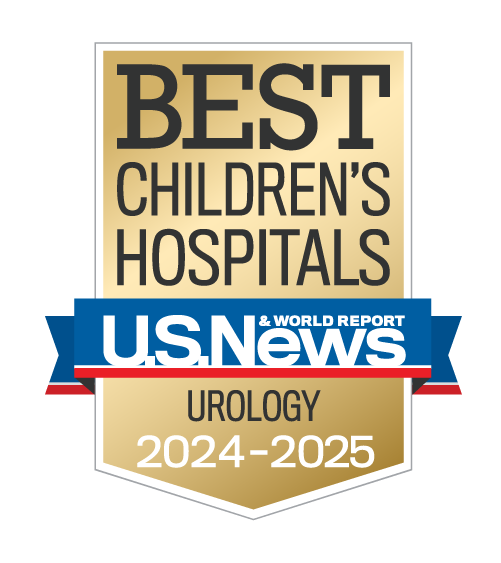The Kidney Stone Program at Boston Children’s Hospital cares for children and adolescents who are affected by kidney stones, including those who have had them previously and those who are at risk for developing them.
Kidney stones are small, hard deposits of mineral and acid salts that form inside the kidneys or ureter (the tube that connects the kidney to the bladder). These stones can block the drainage of urine and cause pain. Once considered an “adult” condition, the incidence of kidney stones in children has increased steadily over the years. In response to this increase, our multidisciplinary program brings together pediatric nephrologists, urologists, and nurses to help treat and manage children with stones.
Treatments typically involve noninvasive or minimally invasive surgical techniques. In rare instances, we use robotic surgery techniques to remove the stones. After treatment, experts in nephrology perform blood and urine analysis to look for any abnormalities that could be potential causes for the stones.
Boston Children’s Hospital joins the Oxalosis & Hyperoxaluria Foundation (OHF) Care Center Network as a leading pediatric center for primary hyperoxaluria. As an OHF Care Center, Boston Children’s will advance care, research, and awareness for pediatric primary hyperoxaluria patients and, when available, provide access to clinical trials.
Our approach to pediatric kidney stone care
Since its establishment in 2007, our program has helped thousands of children afflicted with kidney stones. Our mission is to provide exceptional evaluation and treatment of kidney stones and reduce the rate of their reoccurrence. We’re also committed to reducing the effects of radiation exposure experienced during the evaluation and treatment process.
Our program includes pediatric urologists who specialize in the evaluation, diagnosis, and treatment of stones. Since prevention is also a key part of our treatment plan, our program also includes experts in nephrology who perform an extensive series of blood and urine analysis to help determine the cause of stones and prevent them from reoccurring. This team approach ensures that we provide the most comprehensive and coordinated care to each child we treat.
Our areas of research and innovation
In Boston Children’s Kidney Stone Program, the care we provide is informed by our research. These advances help improve our understanding of kidney stones and lead to the development of new approaches to the evaluation and treatment of kidney stones in children. Learn about our research.


